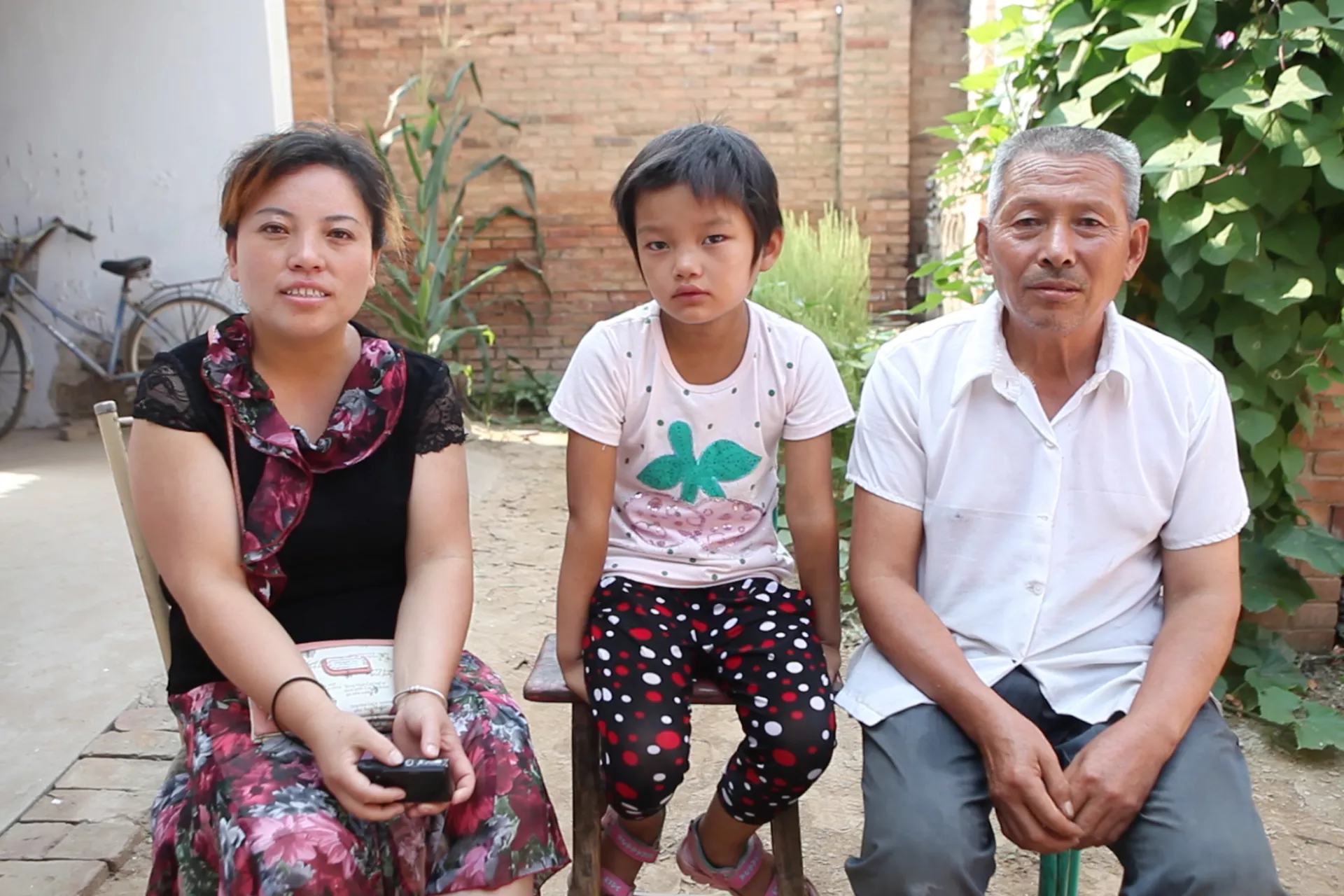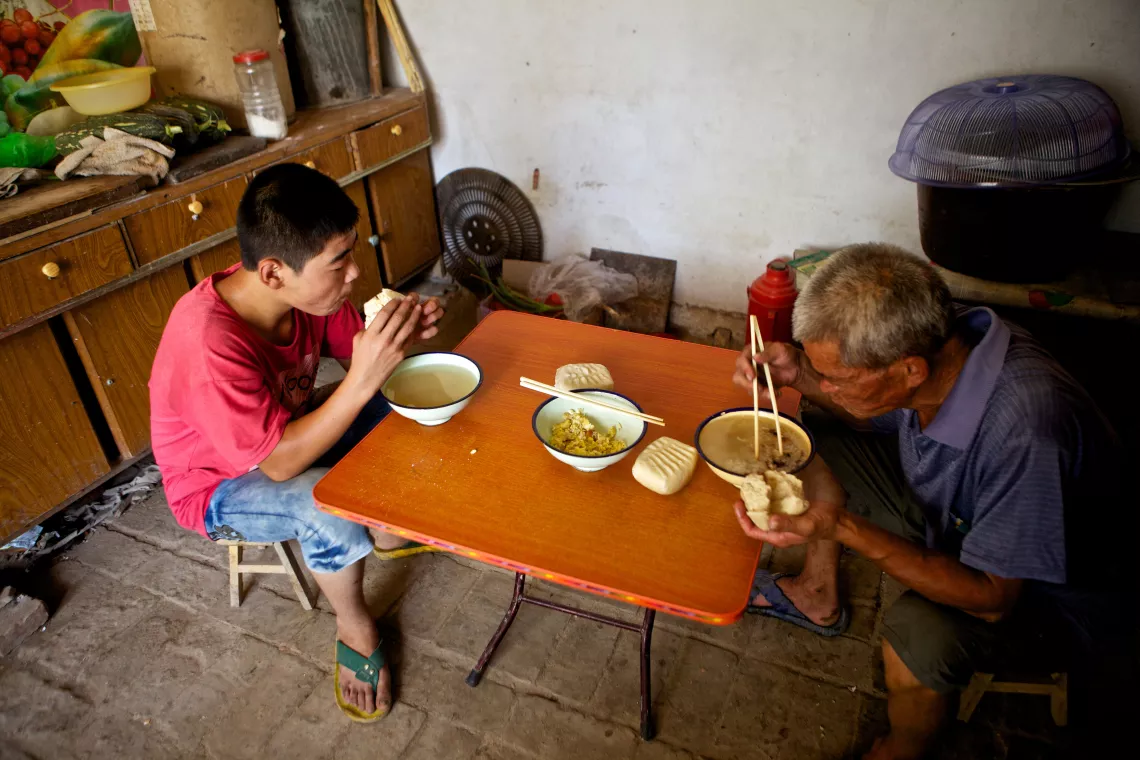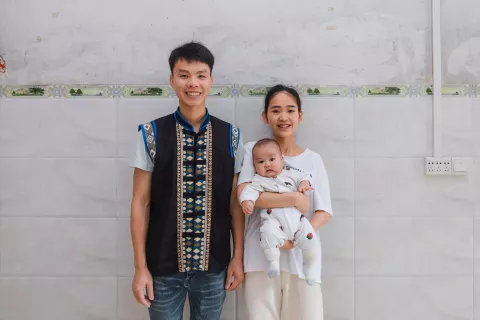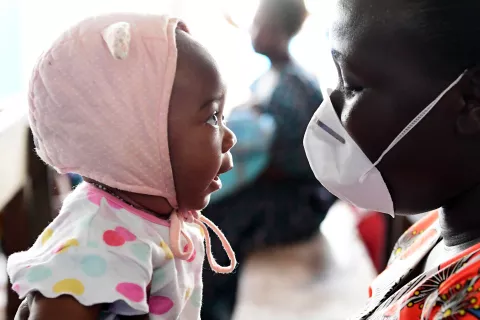In rural China, an innovative solution to reaching to vulnerable children
Child Welfare Directors in rural China are helping children and families get much-needed government assistance and support

- Available in:
- 中文
- English
Panpan has had to grow up quickly. Her mother left when she was only a year old, and her father works in a faraway town. Now just 8 years old, Panpan lives with her grandmother and grandfather in a rural village in Wenxi County, in central China's Shanxi Province.
While her grandfather is farming his vegetable crops in the field, Panpan is always around to help. Grandpa has a lot of things to worry about. He doesn't have much education, so he doesn't know how to teach her, and sometimes the money they earn is not enough for all their expenses.
But life has become a little easier since Mei Hongfang started to visit. A friendly woman who lives in their village, Mei is known as the ‘barefoot social worker', although her official title is Child Welfare Director. She is part of a growing network of community-based social workers helping to reach children like Panpan in rural China.
Grassroots workforce
The Child Welfare Project was started in 2010 in 120 villages in five provinces to reach children affected by HIV/AIDS. Built on the same concept as the ‘barefoot doctors', who became famous for bringing health care to rural areas in China, the idea is to reach poor and remote children in a cost-effective and efficient way.
Mei has become a supportive figure to Panpan and her family. “I wash her hair when I see it is too dirty,” she says in a motherly tone. “When the grandfather is busy with the farming and other things, I look after the family needs.”
Child Welfare Directors are selected through a written test and interview. They are not fully trained certified social workers, who are in dire shortage across China, but they constitute a grassroots workforce that fulfills an urgent need for care and welfare for vulnerable children.
Mei makes sure Panpan and her elderly parents are registered and can access government subsistence allowances of more than RMB 100 (about US$16) per month. “People in the village usually don't know these policies and allowances,” Mei says. Welfare directors are trained to monitor use of the monthly subsidy, ensuring that guardians or caregivers spend it as intended.
“The Barefoot Social Workers make sure that children can benefit from child welfare policies and social protection measures they are entitled to,” explains Xu Wenqing, UNICEF China's HIV and AIDS specialist. “When they identify the needs of children which are not yet covered by the existing policies, they bring them to the attention of the higher authorities.”

Progress
Since the launch of the project, Mei, who is paid an honorarium of RMB 800 ($128) per month, has registered eligible local children below 18 and above 2 years of age. The project has also provided equipment for a child friendly space, where children can come together and play.
Over the last 30 years, China has made enormous progress in raising living standards and child well-being. Nonetheless, about 20 million children remain in poverty in rural areas of China, measured by the official poverty standard of $1.80 per person per day. In 2013, 13 million children were unregistered and unable to fully access basic social services.
Scaling up
The initial pilot project, carried out in partnership with the Ministry of Civil Affairs, has had measureable results helping to increase the number of children being registered, accessing social assistance, health care and education, and benefiting from extra care and support.
In a village of Xia County, Shanxi province, Zhang Shengyin, the Community Welfare Director, helped A Fu, from dropping out school. A lonely boy who lost his parents 10 years ago, he lived very poorly with his grandparents. To help his family survive, he herded sheep and did household chores, rather than going to school.
After much mentoring and coaching from Zhang, A Fu has started junior high school. Zhang also helped them apply for an orphan allowance and secure a home renovation subsidy. They now live in a brick house and are planning for their son's future. A Fu is thinking of becoming a chef.
“I know the only way to help is to change the family's economic conditions,” says Zhang.
With the success of the pilot phase of Child Welfare Project, the Ministry of Civil Affairs is now looking to expand the project to other communities and provinces.



